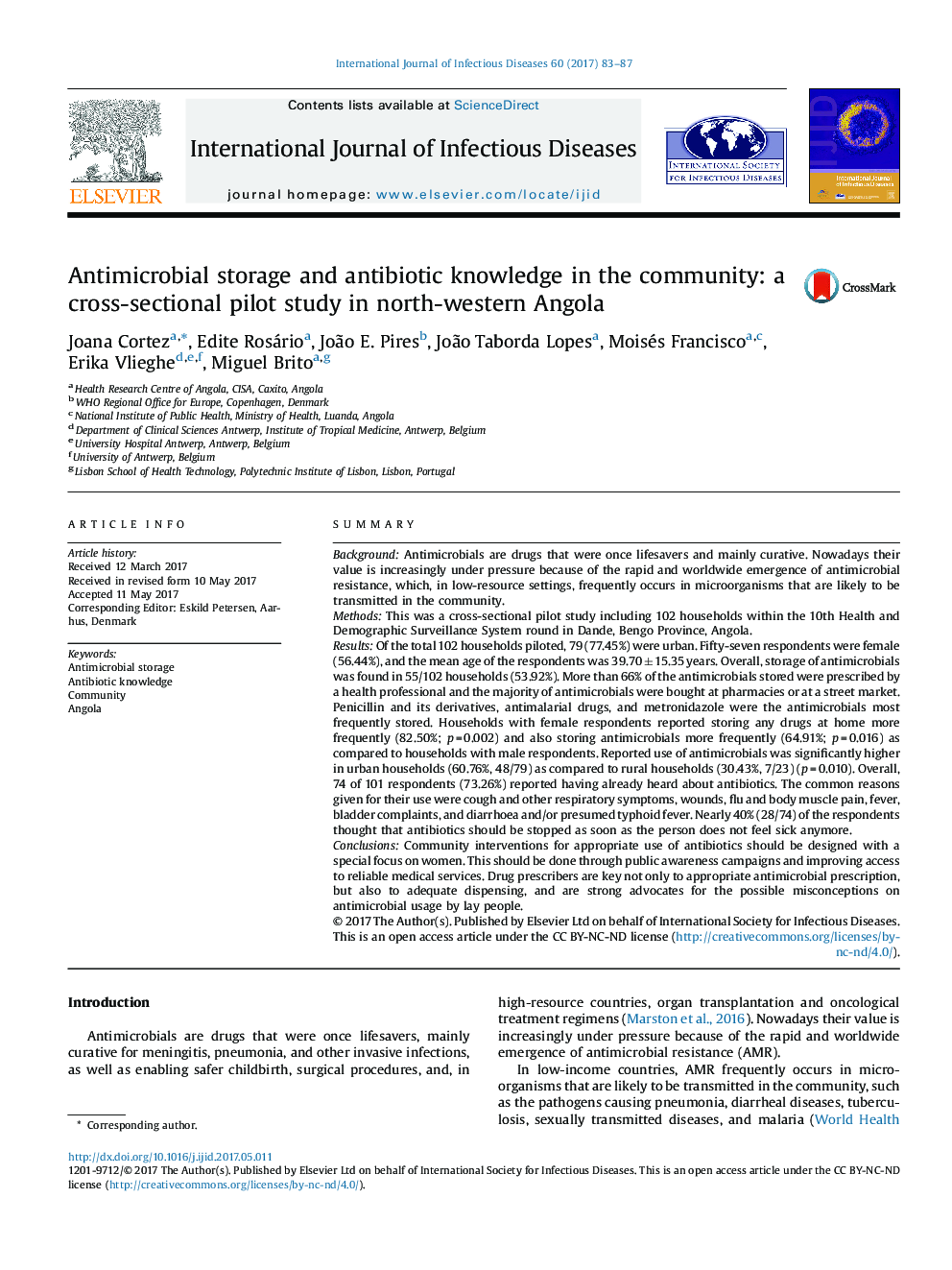| کد مقاله | کد نشریه | سال انتشار | مقاله انگلیسی | نسخه تمام متن |
|---|---|---|---|---|
| 5667159 | 1592033 | 2017 | 5 صفحه PDF | دانلود رایگان |
- The overall storage of antimicrobials in households in Dande, Angola was high.
- The health-seeking behaviour is through pharmacies and hospital-driven procurement.
- Community interventions involving women are essential.
- Doctors, nurses, and pharmacists should be trained thoroughly in antimicrobial management.
SummaryBackgroundAntimicrobials are drugs that were once lifesavers and mainly curative. Nowadays their value is increasingly under pressure because of the rapid and worldwide emergence of antimicrobial resistance, which, in low-resource settings, frequently occurs in microorganisms that are likely to be transmitted in the community.MethodsThis was a cross-sectional pilot study including 102 households within the 10th Health and Demographic Surveillance System round in Dande, Bengo Province, Angola.ResultsOf the total 102 households piloted, 79 (77.45%) were urban. Fifty-seven respondents were female (56.44%), and the mean age of the respondents was 39.70 ± 15.35 years. Overall, storage of antimicrobials was found in 55/102 households (53.92%). More than 66% of the antimicrobials stored were prescribed by a health professional and the majority of antimicrobials were bought at pharmacies or at a street market. Penicillin and its derivatives, antimalarial drugs, and metronidazole were the antimicrobials most frequently stored. Households with female respondents reported storing any drugs at home more frequently (82.50%; p = 0.002) and also storing antimicrobials more frequently (64.91%; p = 0.016) as compared to households with male respondents. Reported use of antimicrobials was significantly higher in urban households (60.76%, 48/79) as compared to rural households (30.43%, 7/23) (p = 0.010). Overall, 74 of 101 respondents (73.26%) reported having already heard about antibiotics. The common reasons given for their use were cough and other respiratory symptoms, wounds, flu and body muscle pain, fever, bladder complaints, and diarrhoea and/or presumed typhoid fever. Nearly 40% (28/74) of the respondents thought that antibiotics should be stopped as soon as the person does not feel sick anymore.ConclusionsCommunity interventions for appropriate use of antibiotics should be designed with a special focus on women. This should be done through public awareness campaigns and improving access to reliable medical services. Drug prescribers are key not only to appropriate antimicrobial prescription, but also to adequate dispensing, and are strong advocates for the possible misconceptions on antimicrobial usage by lay people.
Journal: International Journal of Infectious Diseases - Volume 60, July 2017, Pages 83-87
